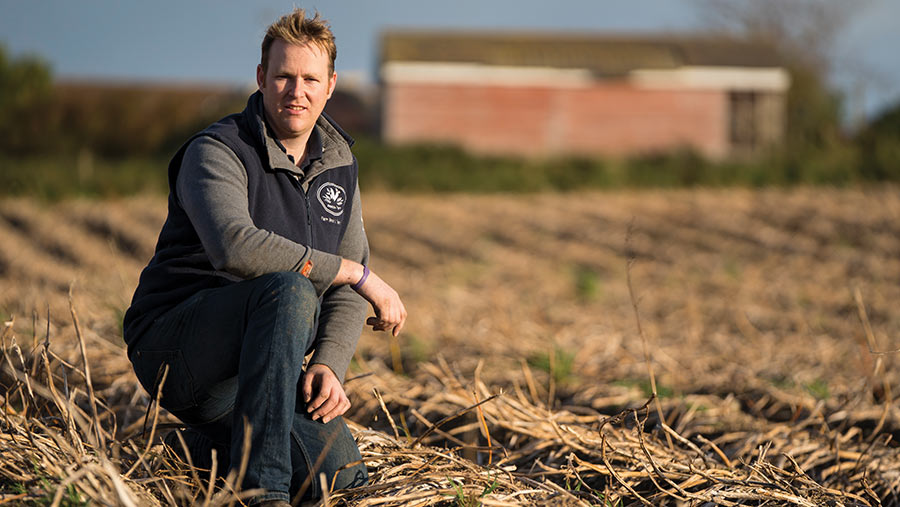Farmer Focus: Supermarkets are hammering local farmers
 Richard Orr © Steffan Hill
Richard Orr © Steffan Hill Over the Christmas period I always get frustrated at the supermarkets, wholesalers and price gulfs.
Supermarkets have driven out the local farmers by hammering them into the ground, and now price cuts are finishing off the local independent stores. It is simply not feasible for them to compete against their scale.
One example is cauliflowers – they are in very short supply. The weather and diminishing numbers of farmers prepared to grow vegetables is causing problems. Local cauliflowers, when available, are about £1. Why is the local grower not entitled to more for a local, fresh product?
See also: Herbal leys and bicrops help hit organic wheat milling premium
This got me thinking about the cereals supply chain and how, in many ways, it is much simpler given we more or less achieve world market value. It’s a simple base line.
As farmers we’ll argue it’s not enough. Rightly so, but when we are such a small player in a world market, why would we expect anything different?
Telling your local UFU/NFU they need to lobby for more money is not a valid argument on its own.
Going into a new year with the challenges of cutting costs to compete in world markets is going to be challenging.
The AHDB Farmbench figures at the Grain Outlook conference made it clear if you’re not in the top 25%, you’re struggling to make money-growing crops.
I feel the whole challenge around Red Tractor and sustainability has opened up the debate, and could bring opportunities, if farmers and their unions worked together.
We need to make sure we don’t give away our added value to Red Tractor or supermarkets without reward.
Our local, higher status low carbon footprint grain (when compared to imports) should be flying at a premium to allow our livestock sectors to reduce emissions figures, using local grains and even beans instead of imported soya.
As farmers, are we prepared to stand up and be sustainable for a reward? If there’s no reward, agriculture will never be sustainable.
The arable sector is the answer to a lot of the livestock industry’s problems, but who has done up the business case and put it to the livestock sectors?
Is the UFU listening to its members or just the processors telling them it will have to be absorbed on farm?


